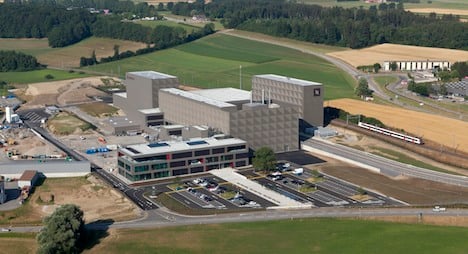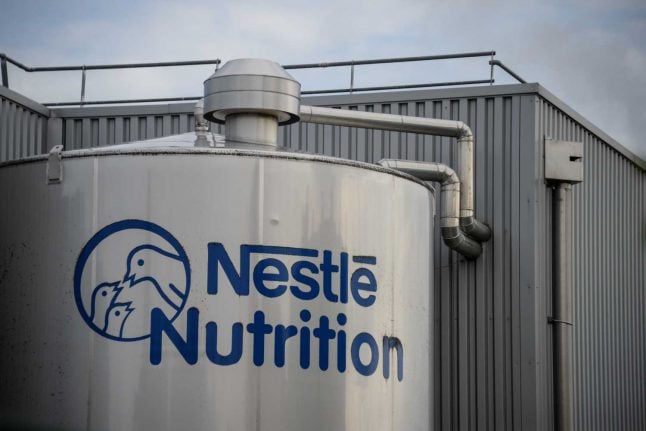The company, a subsidiary of Swiss-based Nestlé, said the 21,000-square-metre plant will serve as the primary production site for its new VertuoLine coffee products aimed for the North American market, in addition to its regular Nespresso capsules.
VertuoLine products, geared to the North American preference for “large-cup” coffee, were launched in the US and Canada last year, where the coffee capsule market is estimated to be worth more than $5 billion a year.
In addition to places for coffee testing, blending, grinding and roasting, the production centre includes capsule production lines, storage silos for green and roasted coffee, and packaging and logistics areas.
Nespresso’s other production centres are in Avenches and Orbe in the canton of Vaud and like them the Romont facility is a “centre of coffee innovation excellence and expertise,” the company said in a press release.
“Our production centres play a key role in our value chain,” Jean-Marc Duvoisin, CEO of Nestlé Nespresso said in a statement.
“This is where top quality green coffee, carefully selected from the world’s best coffee regions, is transformed by our highly skilled coffee experts into Nespresso Grands Crus.”
Nespresso said the Romont plant, currently employing 125 people, is setting new standards for sustainable operations.
The company said the complex received LEED (Leadership in Energy and Environmental Design) Gold certification for its green design, which includes energy efficiency and water saving features.
The plant was built with 20 percent recycled materials.
Nestlé CEO Paul Bulcke said the investment showed Nespresso’s ongoing commitment to Switzerland, where it has invested more than 1.1 billion francs in its facilities.
With headquarters in Lausanne, Nespresso employs 2,300 people in Switzerland and 10,500 globally.
Thirty years after their introduction, Nespresso capsules have become “emblems of Switzerland” around the world, Bulcke told media at the opening, the ATS news agency reported.
“Moreover, Switzerland exports by value more coffee than chocolate and cheese combined.”
Federal Economy Minister Johann Schnedier-Ammann, who attended the opening ceremony, praised Nespresso for investing in Switzerland at a time when the country is facing a “growing erosion” of industrial jobs.
The strong Swiss franc is curbing investments in the country.
But the municipality of Romont and the canton of Fribourg worked hard to attract Nespresso, ATS said.
It is not clear what incentives were provided to attract the investment.
Work on the plant, which began two years ago, involved 25 companies from the region, employing a total of 3,200 people.



 Please whitelist us to continue reading.
Please whitelist us to continue reading.
Member comments